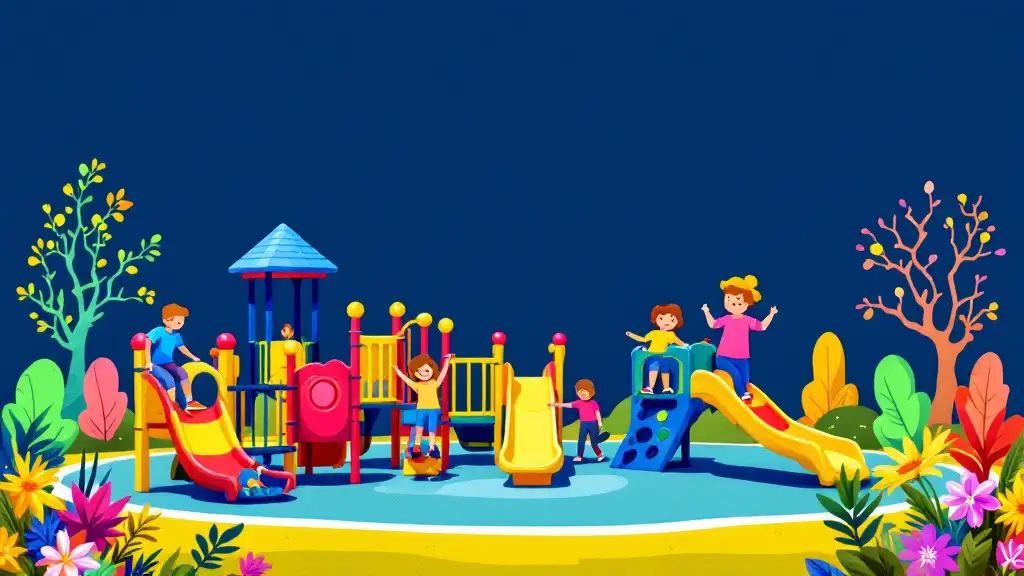
Building Financial Confidence for Adults with Disabilities
Developing grocery budgeting skills is vital for adults with disabilities aiming to gain independence, manage their finances effectively, and improve their quality of life. Through tailored educational strategies, accessible resources, and practical hands-on activities, individuals can learn to plan, allocate, and control their grocery expenses confidently. This article explores effective approaches, key resources, and practical strategies for fostering financial literacy and independent shopping skills among adults with disabilities.
Effective Educational Approaches for Teaching Financial Literacy

What educational approaches are effective for teaching financial literacy and independence to adults with disabilities?
Teaching financial literacy to adults with disabilities requires methods tailored to their diverse needs and learning styles. One highly effective approach involves using specialized curricula designed specifically for this population. For example, "Building the Financial Well-Being of Persons with Disabilities" offers customized training for trainers, along with accessible learning materials that meet the needs of adults with cognitive or developmental disabilities.
Another successful strategy is incorporating visual prompts and hands-on activities into lessons. Programs like Michigan State University Extension’s "Get Ready, Get Set, Get Going" utilize visual cues, practical exercises, and real-life scenarios to teach essential skills such as budgeting, saving, and managing money. These interactive methods help increase engagement and understanding, promoting independence.
Furthermore, including inclusive tools and checklists is crucial. These resources help remove barriers to participation and make learning accessible for all. Checklists support learners in tracking their progress, completing daily financial tasks, and practicing decision-making skills independently.
Using trusted financial education resources significantly enhances teaching effectiveness. Organizations such as FDIC’s Money Smart, Hands on Banking, and the National Disability Institute provide free materials, online modules, and tools that are specifically designed to be accessible and easy to understand.
Combining these approaches—tailored curriculum, visual and hands-on learning, inclusive tools, and reputable resources—creates a comprehensive framework for teaching adults with disabilities. This method not only imparts essential financial skills but also fosters confidence and independence, helping individuals live more self-sufficient lives.
Resources and Guidance for Teaching Financial Management
 Teaching financial management and budgeting to adults with disabilities involves leveraging a variety of specialized resources, curricula, and support services designed to meet diverse needs.
Teaching financial management and budgeting to adults with disabilities involves leveraging a variety of specialized resources, curricula, and support services designed to meet diverse needs.
Several organizations provide comprehensive tools and guidance to facilitate this learning. The National Disability Institute (NDI) is a prominent source offering extensive training programs, curricula, and toolkits focused on improving financial literacy among adults with disabilities. Their resources, such as "Building the Financial Well-Being of Persons with Disabilities," include easy-to-understand modules, practical exercises, and technical assistance.
Online platforms like the Financial Resilience Center serve as valuable resources, offering free educational materials, webinars, and interactive tools that support financial skill development.
State-specific programs also play a critical role. For example, Michigan State University Extension developed "Get Ready, Get Set, Get Going," a curriculum tailored specifically for adults with cognitive and developmental disabilities. This program includes detailed lesson plans, accessible resources, and materials to help individuals learn about budgeting, saving, and making informed financial decisions.
Apart from government and educational institutions, organizations such as Easterseals, The Arc, and the American Association of People with Disabilities (AAPD) provide accessible resources, workshops, and guidance. These often cover topics including ABLE accounts, benefits planning, and money management strategies.
Many of these resources are available at no cost and are designed with accessibility in mind, ensuring that both learners and their support providers can easily access, understand, and use them.
In addition to curricula and online tools, community workshops and one-on-one coaching sessions offered by local agencies and advocacy groups help reinforce learning and promote real-life application of financial skills.
By utilizing a combination of these educational and support resources, adults with disabilities can develop essential financial skills such as budgeting, saving, paying bills, and understanding credit — empowering them to foster independence and improve their quality of life.
For further exploration, searching keywords such as "financial management resources for adults with disabilities" can lead to additional free online guides, templates, and local support opportunities tailored to individual needs.
Strategies for Developing Grocery Budgeting Skills
 Creating and maintaining a grocery budget is an essential step toward financial independence, especially for adults with disabilities. Effective teaching strategies focus on involving individuals actively in decision-making processes to foster confidence and autonomy. By including them in choosing groceries based on their preferences and budget constraints, they gain practical experience and understanding.
Creating and maintaining a grocery budget is an essential step toward financial independence, especially for adults with disabilities. Effective teaching strategies focus on involving individuals actively in decision-making processes to foster confidence and autonomy. By including them in choosing groceries based on their preferences and budget constraints, they gain practical experience and understanding.
Using visual tools enhances learning significantly. Visual aids such as grocery lists, price tags, sale flyers, and budgeting charts help individuals grasp key concepts like comparing prices, calculating totals, and tracking expenses. Hands-on practice in real-world settings, such as actual grocery stores or simulated classroom environments, reinforces these skills.
Breaking the budgeting process into manageable steps makes learning less overwhelming. Support persons can teach how to estimate weekly food costs, set spending limits, and record transactions systematically. Regular discussions about their progress and adjustments help solidify understanding, while emphasizing that budgets are flexible tools that adapt to changing needs.
Fostering financial independence is supported through additional education on banking basics, online security, and recognizing fraud. Resources like visual recipes and decision trees (from programs such as Michigan State University Extension's curriculum) are valuable for building a broad skill set. These tools, combined with consistent practice and personalized support, empower adults with disabilities to manage their finances confidently and effectively.
Practical Skills in Money Management and Expense Planning

How can adults with disabilities improve their budgeting skills to manage expenses effectively?
Adults with disabilities face unique challenges in managing their finances, but developing strong budgeting skills can significantly enhance their independence and quality of life.
One effective approach is to participate in tailored financial education programs, such as 'Get Ready, Get Set, Get Going,' which offer lessons on organizing income, tracking expenses, saving, and understanding bills. These programs often include visual aids, simple worksheets like 'My Spending Plan,' and hands-on activities that make learning accessible.
Creating a personal budget is a vital first step. This involves listing all income sources—such as SSI, SSDI, wages, or benefits from an ABLE account—and categorizing expenses like rent, utilities, groceries, and medical supplies.
Monitoring spending regularly helps individuals stay within their means. Tools such as cash logs, mobile apps, or spreadsheets can support tracking expenses. For example, using a simple budgeting app with accessibility features can empower adults to manage money confidently.
Assistive technology plays a crucial role. Accessible banking tools, online bill pay, and alerts can prevent missed payments and reduce financial stress. Institutions may also offer accessible debit or prepaid cards designed for people with cognitive or physical impairments.
Seeking guidance from financial coaches or community programs can provide ongoing support. These professionals help set realistic savings goals, understand credit management, and explore long-term planning options like grants and special accounts.
Understanding how to protect credit scores, avoiding scams, and leveraging benefits like ABLE accounts or special needs trusts contribute to financial security.
Long-term planning might include setting savings goals for emergencies, housing, or health needs. Learning these skills not only fosters financial independence but also enhances confidence in making informed decisions about money.
Through these strategies—education, technology, support, and planning—adults with disabilities can improve their ability to manage expenses effectively and enjoy greater financial stability.
Educational Components of Financial Skills Development

How can adults with disabilities learn practical skills in money management, savings, and expense planning?
Adults with disabilities can acquire essential financial management skills through specialized education programs tailored to their needs. These programs incorporate visual prompts, hands-on activities, and personalized support to make learning engaging and effective.
A notable example is "Get Ready, Get Set, Get Going: A Guide to Money Management," developed by Michigan State University Extension. It offers 12 comprehensive lessons covering topics like creating budgets, managing expenses, paying bills, understanding credit, and savings strategies. These lessons help build critical skills for financial independence.
Organizations such as the National Disability Institute (NDI) provide additional resources, including free worksheets and facilitator guides, to support community trainers and individuals alike. Online platforms like FDIC’s Money Smart and Better Money Habits have been adapted to be accessible for those with disabilities.
Community partnerships and ongoing financial coaching are also vital. They reinforce skills in real-world settings, boost confidence, and help individuals make informed decisions. Ultimately, these comprehensive educational efforts empower adults with disabilities to manage their finances, set savings goals, and plan for emergencies effectively.
The Importance of Support and Accessibility in Financial Education

How can adults with disabilities learn practical skills in money management, savings, and expense planning?
Adults with disabilities face unique challenges when it comes to managing their finances, but with appropriate support and accessible resources, they can develop essential money management skills. Tailored financial literacy programs are vital in this process.
One effective approach includes programs like "Get Ready, Get Set, Get Going," developed by Michigan State University Extension. This curriculum offers 12 comprehensive lessons that cover important topics such as budgeting, expense tracking, bill payment, saving, and understanding credit. These lessons use visual prompts, hands-on activities, and personalized support to foster confidence and independence.
Resources supporting these efforts include free downloadable lesson plans, facilitator guides, and targeted tools provided by organizations like the National Disability Institute (NDI). Such resources are designed to be accessible and adaptable, ensuring that trainers, caregivers, and learners can work together effectively.
In addition, inclusive programs like FDIC’s Money Smart and Better Money Habits adapt their content to meet the needs of individuals with disabilities. These initiatives emphasize ongoing training, community partnerships, and financial coaching.
Through a combination of customized instruction, community involvement, and ongoing support, adults with disabilities can acquire the practical financial skills needed to manage their money, save effectively, and plan for expenses. This empowerment promotes independence and helps improve their overall quality of life.
| Program/Resource | Focus Area | Accessibility Features |
|---|---|---|
| Get Ready, Get Set, Get Going | Budgeting, saving, credit | Visual prompts, hands-on activities |
| NDI Resources | Financial literacy support | Easy-to-understand guides and tools |
| FDIC Money Smart | Expense management | Inclusive content for people with disabilities |
| Better Money Habits | Financial decision-making | Adapted for accessibility |
Building these skills requires a supportive environment that respects individual needs and provides ongoing encouragement, ensuring every adult with a disability can achieve financial independence.
Fostering Financial Independence and Well-Being
Developing grocery budgeting skills is a crucial step toward empowering adults with disabilities to live independently and make informed financial decisions. By implementing tailored educational strategies, leveraging accessible resources, and encouraging practical, real-world practice, support providers and individuals can build confidence and competence in managing expenses. Continued education, community involvement, and ongoing support are vital in ensuring that adults with disabilities achieve greater financial security, autonomy, and improved quality of life.
References
- Life Skills Video - How to Create a Grocery Shopping List
- New money management lessons for adults with disabilities
- Simplify Financial Management for Enhanced Developmental ...
- How to Teach Grocery Shopping Activities for Students in Life Skills
- Accessible Chef – Accessible Cooking for Budding Chefs
- Explore NDI's Free Financial Wellness Tools!
- Money Management Skills for People with Disabilities - Benefits.com
- Meal Planning, Shopping, and Budgeting | SNAP-Ed - USDA
- Independent Living Skills: Tips for controlling impulse spending












